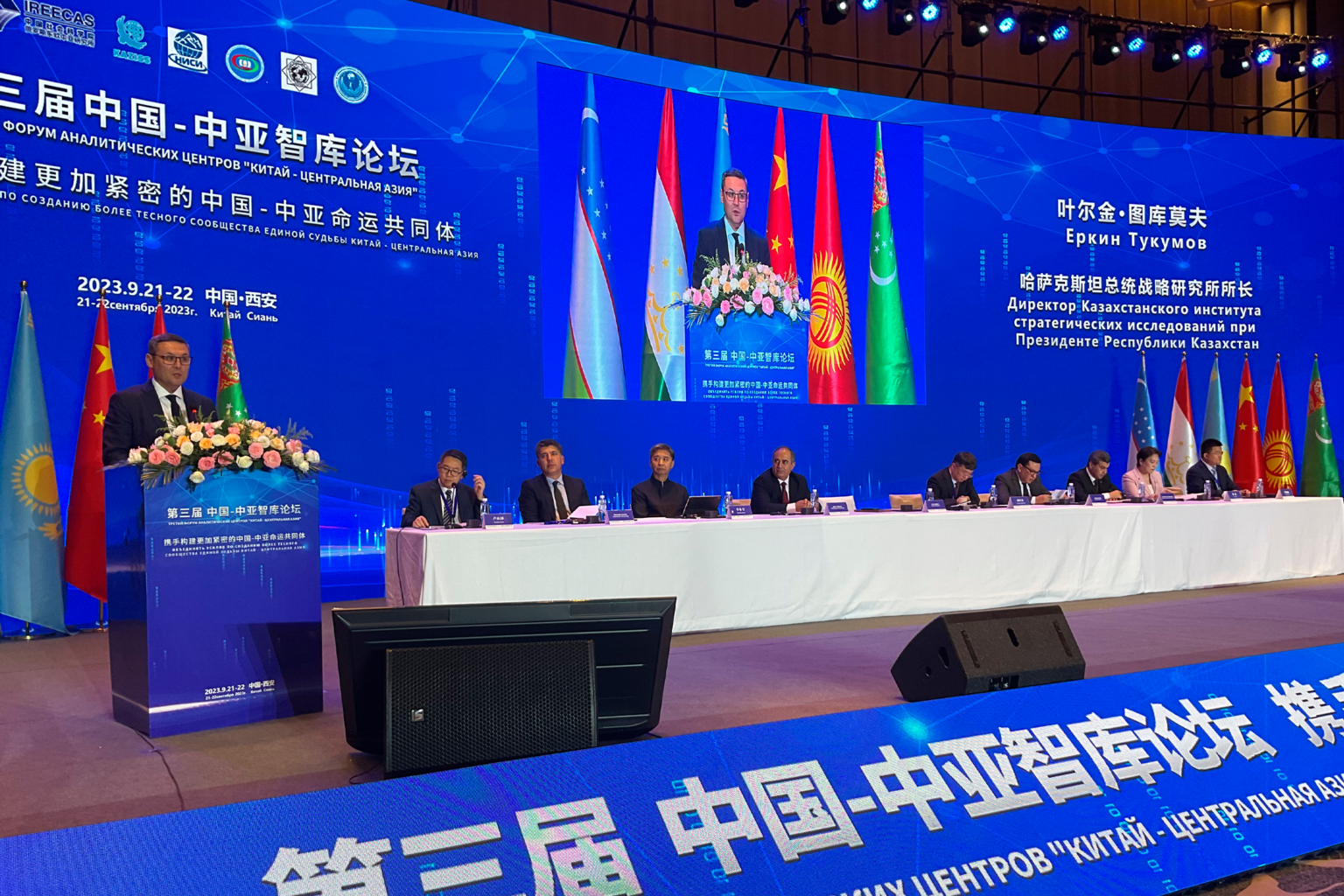ASTANA – Yerkin Tukumov, the director of the Kazakhstan Institute for Strategic Studies (KazISS), outlined key issues in regional cooperation related to connecting transport routes, digital development, and expanding investment attractiveness at the third Central Asia-China Think Tanks Forum on Sept. 21 in Xi’an, China, reported KazISS’ press service.

Yerkin Tukumov delivers his remarks at the third Central Asia-China Think Tanks Forum. Photo credit kisi.kz.
The forum, convening for the third time, emphasized exchanging views on modernization in the context of cultural and civilizational diversity and discussed ways to jointly create a closer community of a common destiny. The outcomes of the discussions at the conference will contribute to decision-making to improve the socioeconomic situation of the participating countries and strengthen interregional cooperation.
Transport routes connection
Tukumov highlighted a 26% increase in cargo transportation to 13.7 million tons between Kazakhstan and China in the first half of this year, mentioning a 37% growth in Kazakhstan’s cargo exports to 8.3 million tons.
He noted the significance of transforming transport corridors into fully functional economic routes. Otherwise, he warned, the economy of Kazakhstan and the entire region would remain at an average income level.
“Connecting transport routes will open up neighboring markets to small and medium-sized enterprises (SMEs), facilitating trade and creating job opportunities,” he stressed.
Digital transformation
Tukumov acknowledged the fintech market’s rapid growth in Kazakhstan, the largest in Central Asia, with an increasing trend in digital payments and e-commerce.
Considering that 78% of people make digital transactions, he proposed to expand the transfer of technologies between Central Asian countries by creating the region’s market of digital technologies.
Investment attraction
The KazISS director emphasized that the volume of foreign direct investment in Kazakhstan fell by 12.4% last year, while the net investment inflow grew by 83.1% to $6.1 billion.
He suggested that transparency of investment projects initiated jointly by Central Asia and China will garner social support and engage SMEs in the work.
Sun Zhuangzhi, the director of the Institute of Russian, Eastern European, and Central Asian Studies at the Chinese Academy of Social Sciences, pointed out positive dynamics in interaction on the Central Asia-China track, expressing particular interest in Kazakhstan’s position оn many international matters.
Leading think tanks from Central Asia represented the region at the forum, including KazISS under Kazakhstan’s President, the Institute for Strategic and Interregional Studies under the President of Uzbekistan, the National Institute for Strategic Studies under the President of the Kyrgyz Republic, the Center for Strategic Research under the President of Tajikistan, and the Institute of International Relations of Turkmenistan’s Ministry of Foreign Affairs.
China was represented by the Institute of Russian, Eastern European, and Central Asian Studies of the Chinese Academy of Social Sciences, and the Europe and Asia Social Development Institute of the Development Research Center of China’s State Council.

